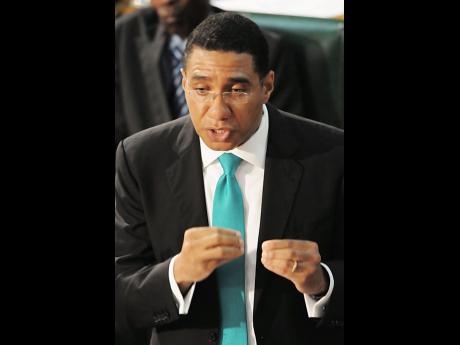Internet access could be a human right
Prime Minister Andrew Holness has said that in another 10 to 15 years, access to the Internet could be viewed globally as a basic human right.
Addressing the 34th annual Jamaica Employers' Federation Convention at the Montego Bay Convention Centre in St James last Friday, Holness said that already some countries have started the process, citing Estonia as one country that has made access free for all its citizens.
"This is so because transactions are going to be moved mainly towards a digital platform," he said.
The prime minister pointed out that here in Jamaica, people have to produce a physical identification to do transactions with the Government, something that might become obsolete or non-existent in the digital age.
'Report child-abuse cases, please'
The Centre for Sexual Offences and Child Abuse (CISOCA) is imploring parents and guardians to report known or suspected cases of child abuse.
"We treat every matter that comes to our attention swiftly and we respect the rights of individuals to privacy and confidentiality, so there is nothing to fear as we have the child's interest at heart," says Superintendent Enid Ross Stewart, head of CISOCA.
She said that under the Sexual Offences Act 2009 and the Child Care and Protection Act, CISOCA is empowered to take action on all reports of sexual offences in relation to children.
She points out that children under the age of 16 cannot give consent for sex and so the law makes it mandatory for sex offenders to face punitive measures before the court.

